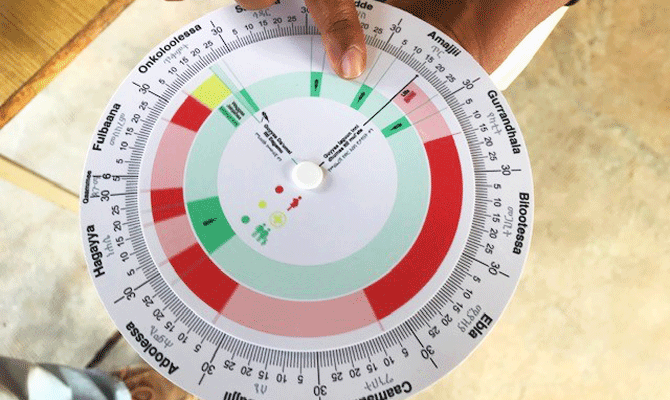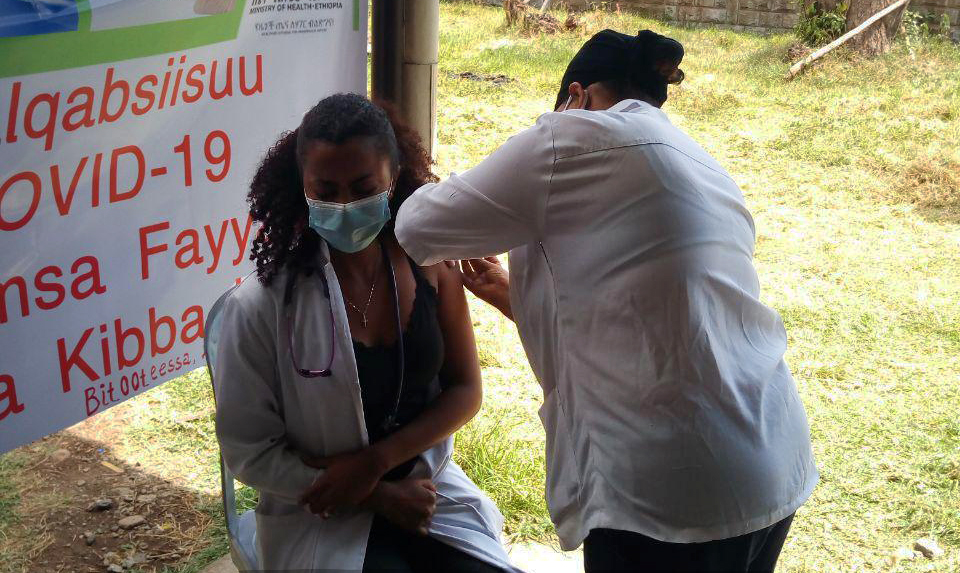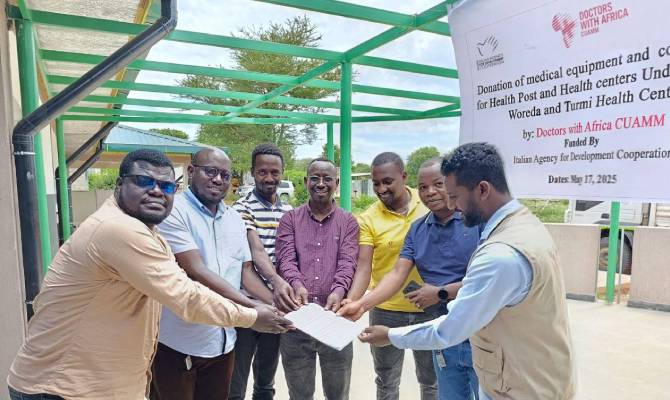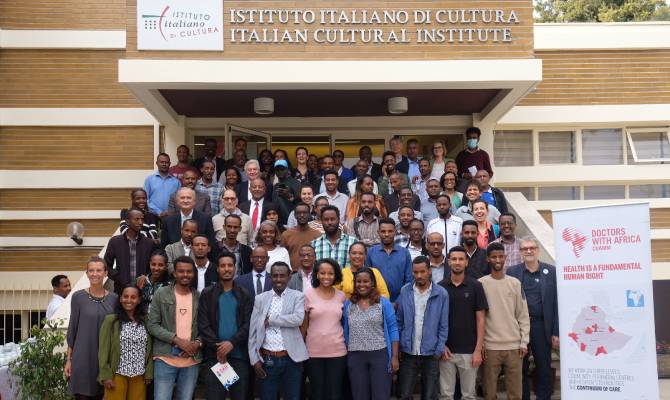In Goro, Ethiopia, remembering appointments at the health centre is not so easy for pregnant women, especially when they are busy looking after the family, the fields and the home. Many Ethiopian women are reluctant to announce their pregnancy until it becomes visible. These habits can represent a health risk for mothers and children: from pregnancy to postpartum, antenatal visits, proper care during labour and delivery, postnatal visits and vaccinations are essential.
This is why Doctors with Africa CUAMM collaborated with the organisation “Women and children first” to launch the 18-month RE-CAL-L pilot project in November 2020 to get mothers used to requesting the services they are rightly entitled to, through a simple personalised reminder system.
So, in May 2021, pregnancy calculators and implementation manuals were distributed to the 50 community health volunteers (CHV) trained to develop the programme. From June to April 2022, the CHVs identified and enrolled 839 women for screening, distributing appointment calendars to them at health centres. CUAMM, in collaboration with local health staff, conducted supervision and support visits to volunteers and women enrolled in RE-CAL-L.

The project has been enthusiastically received by mothers and their families, as the operators say: “When we affix the calendar on the wall at home, the mothers-to-be are happy, they appreciate what we explain about the services”. The tools are understandable for all: “The calendar is very simple. The three colours communicate different messages: red for the services we receive before the childbirth, yellow for preparing for childbirth and green for services after childbirth and vaccination of the baby”. Furthermore, in cases where recognition appears more difficult because the mother has not had access to education, health staff and family are helpful: “The calendar is not difficult to understand, but because I am not instructed, my children read it for me! Thanks to these methods, the women were able to alert the health workers well in advance at the time of delivery: “I called an ambulance when the day of delivery was approaching on the basis of the calendar and returned home safely with my baby”.
Rahmat, 22, a recent mother of a baby girl, was particularly satisfied: “The calendar reminded me of all the dates of my visits during pregnancy and after delivery. It made me aware of my rights. I have already taken my daughter for her first vaccination. I can’t wait for the next one!”.
The project was a success, reaching 82 per cent of pregnant women in the Goro area, and resulted in a significant increase in the percentage of mothers-to-be who had at least four antenatal visits to health centres and their first antenatal check-up within the first 16 weeks of pregnancy. The results were so encouraging that leading health office officials promised that they would continue to use the pregnancy calculators after the end of the project. A demonstration that there is great potential for the RE-CAL-L system in Ethiopia, particularly to maximise results in a resource-limited setting. We hope that this system can be applied not only in other areas of Ethiopia, but also in other contexts: in this perspective, Goro and its 839 women are the starting point.





